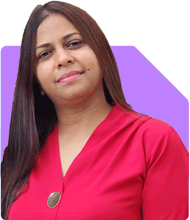Ramalingam Kalirajan |4268 Answers |Ask -Follow
Mutual Funds, Financial Planning Expert - Answered on Jul 03, 2024
He has an MBA in finance from the University of Madras and is a certified financial planner.
He is the director and chief financial planner at Holistic Investment, a Chennai-based firm that offers financial planning and wealth management advice.... more

Hi I am a 39 years old and I need my retirement solutions in next 19 years. I want to generate Rs 1 lakhs per month after inflation adjusted. Current monthly expenses is Rs 35000, no loans and emi, currently investment Rs 5600per month in (total 700000 till now) MF. Rs 30000 in shares, EPF 200000, PF 20000, fixed deposit Rs, 20000. How much I required to enjoy my life after retirement
Understanding Your Financial Goals
Your primary financial goals are:
Retirement Corpus: Generate Rs 1 lakh per month post-retirement, adjusted for inflation.
Investment Strategy: Optimize your current investments and increase your monthly savings.
Analyzing Your Current Financial Situation
Current Investments:
Mutual Funds: Rs 7,00,000 total, Rs 5,600 per month.
Shares: Rs 30,000.
EPF: Rs 2,00,000.
PF: Rs 20,000.
Fixed Deposit: Rs 20,000.
Monthly Expenses: Rs 35,000.
You have no loans or EMIs, which is excellent. This allows you to allocate more towards your investments.
Estimating Retirement Corpus
To generate Rs 1 lakh per month after retirement, accounting for inflation, let's assume an average inflation rate of 6% per year.
Retirement Planning Strategy
1. Increase Monthly SIPs
To achieve your retirement goal, you need to increase your monthly investments. Consider increasing your SIPs in mutual funds. Diversify across various mutual funds for balanced growth and risk management.
A. Equity Mutual Funds
Equity mutual funds offer higher returns over the long term but come with higher risks. They are suitable for your long-term goal.
Large Cap Funds: Invest in well-established companies.
Mid Cap Funds: Invest in medium-sized companies with growth potential.
Small Cap Funds: Invest in smaller companies with high growth potential.
B. Hybrid Funds
Hybrid funds invest in both equity and debt instruments. They offer balanced returns with lower risk.
Aggressive Hybrid Funds: Higher allocation to equities.
Balanced Advantage Funds: Dynamic allocation between equity and debt.
C. Systematic Investment Plan (SIP)
Increase your SIP amount gradually. Start with a manageable increase and aim to invest at least 20% of your monthly income.
2. Employee Provident Fund (EPF) and Public Provident Fund (PPF)
EPF and PPF are government-backed schemes that offer attractive interest rates and tax benefits. Continue contributing to your EPF and consider opening a PPF account.
PPF: Invest up to Rs 1.5 lakh per year. It offers a lock-in period of 15 years, making it suitable for long-term goals.
3. Fixed Deposits and Debt Funds
While fixed deposits are safe, they offer lower returns. Consider allocating more towards debt mutual funds which offer better returns with moderate risk.
Debt Mutual Funds: Suitable for short to medium-term goals. They invest in fixed income securities and provide better returns than fixed deposits.
4. Diversification and Risk Management
Diversification reduces risk and ensures steady returns. Here's how to diversify your portfolio:
Equity Mutual Funds: 50% allocation.
Hybrid Funds: 20% allocation.
Debt Mutual Funds: 20% allocation.
PPF and EPF: 10% allocation.
Regular Review and Adjustment
Financial planning is dynamic. Regularly review and adjust your investments based on market conditions and your financial goals.
Annual Review: Review your financial plan at least once a year.
Adjust Investments: Adjust your investments based on changes in your financial goals, market conditions, and risk tolerance.
Power of Compounding
The power of compounding works best when you start early and stay invested for a long time. The interest earned on your investments gets reinvested, which in turn earns more interest. This cycle continues, leading to exponential growth of your investment over time.
Tax Planning
Maximize tax-saving investments to reduce your tax liability and boost your savings.
Section 80C: Invest in PPF, EPF, ELSS, and other tax-saving instruments to avail tax benefits under Section 80C.
Section 80D: Avail tax benefits on health insurance premiums under Section 80D.
Insurance Planning
Adequate insurance coverage is essential to protect your family's financial future.
Term Insurance: Provides financial security to your family in case of your untimely demise. Ensure your coverage is sufficient to cover your family's needs.
Health Insurance: Covers medical expenses and protects your savings. Consider a family floater plan to cover yourself and your dependents.
Final Insights
Achieving your retirement goals requires disciplined saving and investing. Here are some final insights to help you stay on track:
Start Early: The earlier you start investing, the more time your money has to grow.
Be Disciplined: Stick to your investment plan and avoid unnecessary expenditures.
Diversify: Diversify your investments to manage risk and ensure steady returns.
Seek Professional Advice: Consult a Certified Financial Planner (CFP) for personalized financial advice.
By following this comprehensive financial plan, you can ensure a secure and comfortable retirement.
Best Regards,
K. Ramalingam, MBA, CFP,
Chief Financial Planner,
www.holisticinvestment.in
You may like to see similar questions and answers below
Sanjeev Govila |458 Answers |Ask -Follow
Financial Planner - Answered on Feb 06, 2024
Ramalingam Kalirajan |4268 Answers |Ask -Follow
Mutual Funds, Financial Planning Expert - Answered on Apr 27, 2024
Sunil Lala |193 Answers |Ask -Follow
Financial Planner - Answered on Feb 11, 2024
Mayank Chandel |1304 Answers |Ask -Follow
IIT-JEE, NEET-UG, SAT, CLAT, CA, CS Exam Expert - Answered on Jul 05, 2024
Mayank Chandel |1304 Answers |Ask -Follow
IIT-JEE, NEET-UG, SAT, CLAT, CA, CS Exam Expert - Answered on Jul 05, 2024
Mayank Chandel |1304 Answers |Ask -Follow
IIT-JEE, NEET-UG, SAT, CLAT, CA, CS Exam Expert - Answered on Jul 05, 2024
Mayank Chandel |1304 Answers |Ask -Follow
IIT-JEE, NEET-UG, SAT, CLAT, CA, CS Exam Expert - Answered on Jul 05, 2024
Sushil Sukhwani |434 Answers |Ask -Follow
Study Abroad Expert - Answered on Jul 05, 2024
Sushil Sukhwani |434 Answers |Ask -Follow
Study Abroad Expert - Answered on Jul 05, 2024
Nayagam P P |1350 Answers |Ask -Follow
Career Counsellor - Answered on Jul 05, 2024
Nidhi Gupta |159 Answers |Ask -Follow
Physiotherapist - Answered on Jul 05, 2024
Mayank Chandel |1304 Answers |Ask -Follow
IIT-JEE, NEET-UG, SAT, CLAT, CA, CS Exam Expert - Answered on Jul 05, 2024
Mayank Chandel |1304 Answers |Ask -Follow
IIT-JEE, NEET-UG, SAT, CLAT, CA, CS Exam Expert - Answered on Jul 05, 2024













.jpg)










